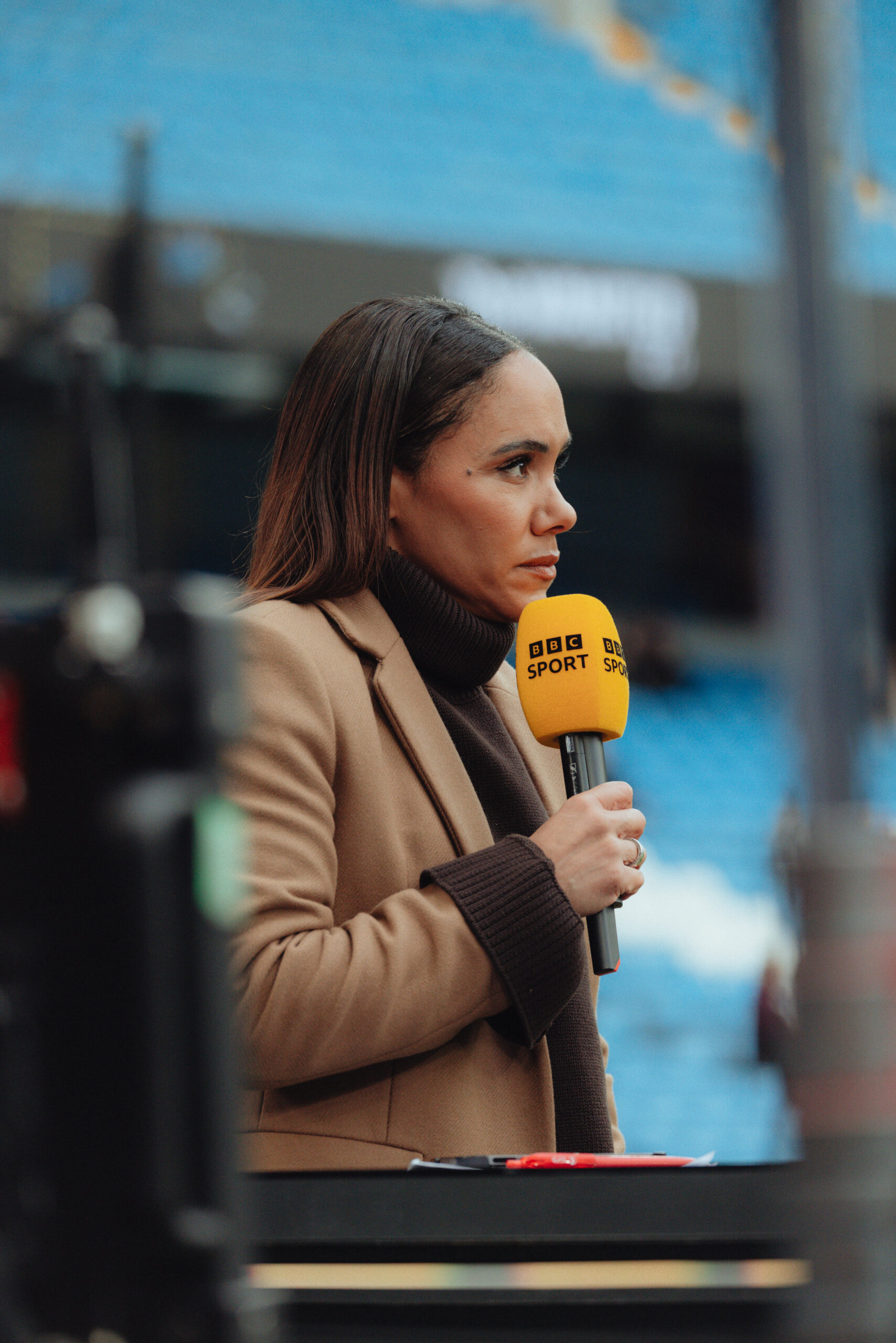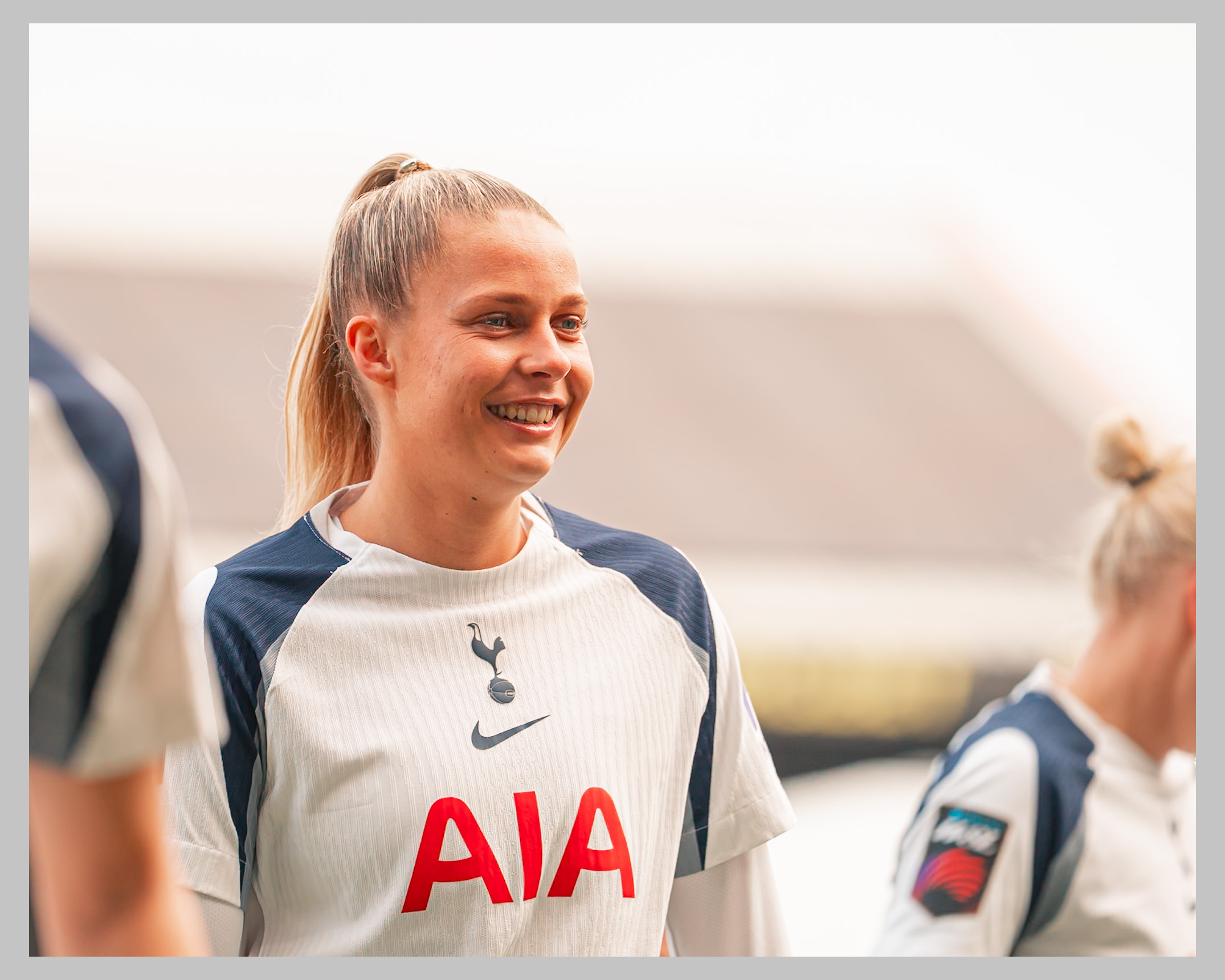TW – This article contains references to homophobia and suicide
Women’s football has emerged as a powerful platform for promoting inclusivity and empowerment, particularly for the LGBTQ+ community. As the sport gains global traction, it offers a unique space where athletes can be themselves and inspire others to do so as well. The significance of women’s football for the LGBTQ+ community is highlighted through insights and experiences from openly queer footballers who have championed greater acceptance and visibility in the sport and for the community in the wider world.
Women’s football has played a pivotal role in enhancing LGBTQ+ representation. The sport’s inclusive culture allows players to embrace their identities openly and serve as role models for fans and aspiring athletes. This visibility is vital for young people who may be grappling with their identities, showing them that they can achieve their dreams without concealing who they are. Megan Rapinoe, one of the most prominent faces in women’s football in recent years and a staunch advocate for LGBTQ+ rights, has often spoken about the importance of being visible. She came out publicly in 2012 and has since used her platform to advocate for equality.
“Being open and honest about who I am was one of the best decisions I’ve ever made. It allows me to live my truth and inspire others to do the same.”
Rapinoe has also showed the courage of her convictions, notably refusing to visit the White House under President Donald Trump after winning the World Cup in 2019 due to his views on LGBTQ+ rights, stating:
“I’m not going to the f***ing White House. We’re not going to be invited. I doubt anyone wants to invite us anyways.”
A significant aspect of women’s football is its commitment to creating safe spaces for LGBTQ+ athletes. Many clubs and national teams actively promote inclusivity, ensuring that players are supported regardless of their sexual orientation or gender identity. This supportive environment enables athletes to perform at their best without fear of discrimination. Casey Stoney, an openly queer ex-England footballer and now manager, has highlighted the importance of these inclusive environments.
“Playing in a team that supports and accepts me for who I am has made all the difference. It’s not just about tolerance; it’s about genuine acceptance and support,”
Recent disturbing events on social media have underscored the importance of creating and maintaining inclusive environments. US Women’s National Team and Paris Saint-Germain midfielder Korbin Albert faced public backlash after re-posting homophobic and transphobic content on TikTok. USWNT veterans such as Megan Rapinoe and Sam Mewis publicly condemned her actions, emphasising that the USWNT has always been a safe space for everyone.
Rapinoe shared on her Instagram:
“… [Are you] bringing out the best in anyone? Because if you aren’t, all you believe in is hate. And kids are literally killing themselves because of this hate. Wake, TF up!”
The incident sparked widespread condemnation and highlighted the need for ongoing education and advocacy within the sport. It also carried added significance as Albert now wears the number 15 jersey, which Megan Rapinoe once wore, symbolising a legacy of inclusivity and acceptance. Rapinoe signed off her statement with ‘Yours truly, #15.’
This controversy has shown there is more work to be done in creating a safe environment within women’s football. Beth Mead, an openly gay footballer for England and Arsenal, has expressed optimism about the future.
“The progress we’ve made is incredible, but there’s still work to be done. I believe that as we continue to support each other and push for equality, we’ll create an even more inclusive and accepting environment,”
Positive representation within the sport continues to inspire and uplift the LGBTQ+ community. Magdalena Eriksson and Pernille Harder, an openly queer couple who both play for FC Bayern Munich, have become symbols of love and acceptance in women’s football. Their openness about their relationship has helped normalise same-sex relationships in sports and beyond. Eriksson has said:
“Being able to be open about our relationship has been incredibly empowering, not just for us but for many others who see us as role models.”
The couple made headlines with their kiss after Sweden knocked out Canada during the 2019 World Cup, with Pernille donning their rival countries’ jersey in the crowd in support of her partner. A moment that was celebrated globally and showcased the importance of LGBTQ+ relationships in sports. When speaking to the Guardian, Eriksson said:
“I think that’s when I felt the demand for role models in that way, because of how big it was and how many people wrote to me on Instagram saying they looked up to us and how much we’d helped them. That’s when I understood that we’re really powerful together.”
The 2023 FIFA Women’s World Cup was hailed as the most ‘out’ football tournament ever, with a record number of openly LGBTQ+ players, approximately 13% being openly part of the LGBTQ+ community. This visibility on such a global stage was a landmark moment for LGBTQ+ representation in sports. The tournament showcased the strength and diversity of women’s football, highlighting the sport’s role in advancing LGBTQ+ rights and acceptance.
While women’s football has made significant strides in LGBTQ+ representation, men’s football still lags. There are currently no openly gay male footballers in the Premier League, reflecting a persistent stigma and fear of discrimination. This stark contrast underscores the importance of women’s football as a safe space where athletes can express their true identities without fear.
Women’s football serves as a crucial vehicle for promoting LGBTQ+ visibility, acceptance, and empowerment. Through the courage and advocacy of openly queer footballers, the sport has become a symbol of inclusivity and a source of inspiration for many. As the women’s game continues to rise, its impact on the LGBTQ+ community will undoubtedly grow, fostering a more inclusive and accepting world for all.
Pride in women’s football extends far beyond Pride Month, embodying a year-round commitment to celebrating diversity and promoting acceptance. It’s not just about colourful events but about creating lasting change and affirming the right of LGBTQ+ individuals to live openly and authentically. This ongoing celebration is integral to how queer people live their lives, providing a sense of belonging and visibility that transcends the boundaries of the pitch.
https://www.theguardian.com/football/2019/jun/27/megan-rapinoe-donald-trump-white-house



